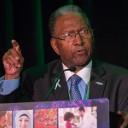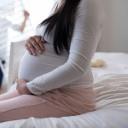-
November 16: The Week in Cancer News
A study links adolescent obesity to adult pancreatic cancer risk, and “Batkid” turns 10 years old.
by Bradley Jones
-
Coordinating Care
A caregiver offers tips for staying on top of appointments and test results when a loved one is receiving care from multiple providers.
by Tara Rosenzweig
-
Reinforcements for Cancer Research
Scientific meeting emphasizes the importance of patient advocates in helping researchers to reduce cancer health disparities.
by Marci A. Landsmann
-
November 9: The Week in Cancer News
A study assesses how timing affects the outcomes of pregnancy after cancer treatment, and researchers present on the benefits of Medicaid expansion for breast cancer patients.
by Kate Yandell
-
Guiding Care
Medical oncologist Gabrielle Rocque explains the role of clinical practice guidelines in breast cancer care.
by Anna Azvolinsky
-
Does Medicaid Expansion Have an Impact?
Analysis suggests states that opted for Medicaid expansion had higher use of hormone therapy for breast cancer patients.
by Marci A. Landsmann
-
Achieving Health Equality
National Cancer Institute director Norman “Ned” Sharpless describes the challenge and opportunity of studying cancer disparities.
by Marci A. Landsmann
-
November 2: The Week in Cancer News
A survey shows that 39 percent of Americans believe that alternative therapies can cure cancer, and a trial finds that minimally invasive surgery is inferior to traditional surgery for treating cervical cancer.
by Kate Yandell
-
October 26: The Week in Cancer News
Researchers present cancer clinical trial results at the ESMO 2018 Congress, and a study shows that crowdfunding campaigns are raising money for unproven cancer treatments.
by Kate Yandell
-
Palliative Care Pays Off
Patients with advanced cancer who receive palliative care tend to live longer and have better quality of life than those who do not receive this care.
by Cheryl Platzman Weinstock
Cancer Talk
Lessons From 20 Years Living With Cancer
Multiple myeloma survivor Jonathan Gluck reflects on uncertainty, and the scientific progress that has kept him living with cancer for more than two decades.
by Eric Fitzsimmons
The Enduring Importance of Cancer Disparities ResearchOpening session from AACR conference highlights how perseverance and adversity have informed cancer disparities research over the years.
by Eric Fitzsimmons
Most Cancer Survivors Don’t Meet Healthy Diet GoalsDespite research linking fruits and vegetables to cancer survival, many people do not change their eating habits after diagnosis.
by Darlene Dobkowski
Many People Don’t Get Colonoscopy After Receiving Abnormal Blood TestsAbout half of people who receive abnormal results from colorectal cancer screening tests don’t follow up with a colonoscopy.
by Laura Gesualdi Gilmore














